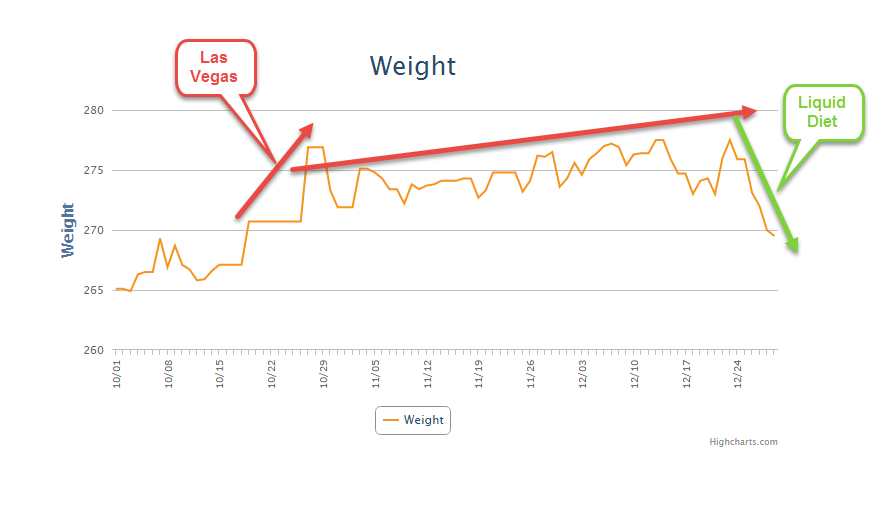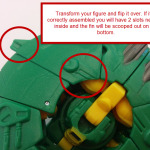“Which weight loss surgery is right for me?”

Great question! You should probably ask a real doctor, not an information security guy.
Since I’ve already had a weight-loss surgery I’m going to spoil the end of the article for you: I went with the gastric sleeve.
Based on the propaganda supplied by my glorious surgeon and a little bit of googling, there’s three main types of bariatric surgery. There’s the bypass, the sleeve, and the band.
There’s 3 ways I weigh the different procedures. The first is the amount of weight lost (and kept off). The second are the health effects of the surgery. Finally, I consider the dietary requirements.
Gastric Bypass (Roux-en-Y Gastric Bypass)
This is the old fashioned standard bariatric surgery. It’s been around the longest so there’s the most studies for its effectiveness. I’ll explain the pros and cons, but first here’s a technical description of the procedure:
- The doctor cuts you open and starts cutting your organs out.
- Eventually the doctor gets tired, or a hand cramp or something, and stops removing vital organs.
- In a rushed panic reminiscent of a 6th-grade science fair the doctor hastily plugs whatever’s left of your intestines into the bottom of your throat.Et viola! Really, though, wikipedia has a good description.
The gastric bypass is the older of the three surgeries so there’s been more time for studies showing how well it works. Turns out, it works the best for long-term weight loss. Wikipedia says a loss of 65–80% of excess weight is typical. I didn’t bother to see if that’s backed up at all because, man, I just love rolling the wikipedia dice.
You’ll have to deal with the fallout of bypassing more of your GI tract for absorbing vitamins and minerals by battling deficiencies for the rest of your life. Not an awesome Braveheart-style historically inaccurate battle; the kind of battle where you eat tons of chewable multivitamins forever and ever. Oh, yeah, you can’t ever have a regular pill again ever.
After surgery the diet restrictions are intolerance to red meat, milk, sugar, and starches. Essentially, anything worth eating. There’s also our old friend dumping syndrome, too.
Gastric bypass is sorta reversible. They can re-re-plumb your insides, but I don’t know how to do it. So do yourself a favor and don’t call my office to book your appointment.
Gastric Sleeve (Sleeve Gastrectomy)
This is the one I’m having. Read my expanded post on what this entails. I wanted to make an entrails joke here, but I am too serious a dude to make those jokes. Stay with me, people!
According to a study of a bunch of Poles, the sleeve and bypass have about the same long-term weight loss. Maaaybe you can lose a little more with the bypass, but it isn’t much if any.
There’s three ways bariatric surgery works. First, there’s restrictive. That’s simple; you’re restricted from shoveling so damn much Americone Dream into your face-hole. Second, there’s malabsorption. Malabsorption means that you don’t absorb as many nutrients (protein, carbs, etc.) from your food as you normally could. Third (and in terms of writing a 3-part paper, what a cop-out) is a combination of the two.
The gastric sleeve is a restrictive approach (as opposed to the gastric bypass’s combination approach). The downside to this is that you may not lose as much weight. The upside is that you avoid all of the vitamin and mineral deficiencies. You also miss out on most of the dumping syndrome.
As for the long-term changes to diet, there aren’t really any. Well, aside from the obvious change where I won’t eat so damn much. Remember above where I said gastric bypass patients are intolerant to “red meat, milk, sugar, and starches”? With the gastric sleeve I can still eat sensibly-small portions of all of those.
It’s a little bit safer than the bypass since there’s no rerouting of the intestines (yeah, I wasn’t kidding about that part). There’s lower risk of infection because of that as well. Since part of the stomach is removed the procedure is irreversible.
Adjustable Gastric Banding
In a typical “here’s three alternatives, and this one is the best” article you’ll see the best one last. I’m super great at this sort of thing so I’m not following that rule. A friend asked why I chose the sleeve instead of a Lap-band in a comment on my previous post. And he’s right to ask; the adjustable band seems to be the perfect solution; all the weight loss and it’s reversible. So here’s why.
First, here’s what an adjustable gastric band is. Instead of rerouting your intestines or tossing most of the glorious stomach you’ve worked so hard on into the trash, the band just inserts a little loop around the inlet to your stomach. It’s like a surgically implanted Verne Troyer choking the shit out of your stomach 24×7. The awesome part is that it’s inflatable like a water wing, so the doctor can inflate (or deflate) your band as needed to allow you to lose the weight at a good rate.
You don’t lose weight as well as the other surgeries. That might not be as big a deal for my minimally-morbidly obese (is there such a thing?) friends, but it’s a thing. If you have the band adjusted to be wider, you can eat more so you won’t lose as much weight. If you have it adjusted tighter, then you weren’t losing as much weight as you could have been prior to the adjustment. I know I would have kept a get-out-of-jail-free card in the form of “Eh, I’ll just go have it adjusted.” It would have spelled doom. Doooooooooooooooom.
Oh, once the band is removed there’s nothing to stop you from just eating your way back to the top of fatass mountain. If I had that sort of self discipline to stop that amount of weight gain in the first place, I wouldn’t have needed surgery. So the outlook isn’t so good.
Gastric bands are restrictive so you aren’t going to have the same issues as with a gastric bypass. Instead, you get a whole bunch of other ones! Remember how I said the band chokes off the inlet of your stomach? Because of that you can’t have regular pills, you have to chew/puree everything you eat like crazy, and you have your own list of food intolerances: Red Meat, bread, pasta, rice, nuts, seeds, the skins of fruits and vegetables, and the membranes of citrus fruits.
Oh dear sweet baby Jesus H. Christ! Not the membranes of citrus fruits! Oh no!
But really, that’s a hell of a list of food intolerances.
Adjustable banding gets off kinda easy in the long-term comparison since it’s reversible. I have a couple of things here, though. First, remember what I said about just being able to yo-yo back up again. For me it was a real concern, and I imagine it may be for you too. Second, the adjustable band requires regular visits to your surgeon to have it adjusted.
So you get the hassle of going back often to have it adjusted. And while you’re at it, you have to worry about infections at the site of your port. Sure, you and the doctor probably view that port as place to import/export saline to inflate/deflate the gastric band. But nefarious germs will view that port as an easy way to import undeclared fruits and vegetables, illegal firearms, giant bales of marijuana, oh and MRSA right to your abdominal cavity.
Hey, at least it’s reversible.
My Verdict
Diet and exercise is the winner!
Just kidding. That’s ridiculous. And I’m not kidding about it being ridiculous. I’ll explain more in an upcoming post.
| Surgery | Weight Loss | Health Consequences | Dietary Boo-Hoo-Hoo | Superpowers Conferred | Arbitrary Grade |
|---|---|---|---|---|---|
| Roux-En-Y Gastric Bypass | Best | Lifelong nutrition deficiencies | red meat, milk, sugar, and starches | none | C |
| Sleeve Gastrectomy | Almost best | Minimal impact | Have to cut down on portions | none | A |
| Adjustable Gastric Band | Better than nothin! (maybe) | High impact while it's in, zero otherwise | Red Meat, bread, pasta, rice, nuts, seeds, fruit skins, vegetable skins, citrus membranes | none | F- |
I got a sleeve gastrectomy. I really do think it was the best of the three options for me. It may be for you as well, but you’ve got to do your own homework.
I must confess I had a big help that didn’t really factor into the comparisons above. My sister had a gastric sleeve 8 months before I had mine. I was able to see first-hand all the problems and success she’s had. When I went in to the informational seminar I had a feeling I would end up with the sleeve. They presented all three types of surgeries and gave the same basic reasons I have here as to why they do mostly sleeves.
They didn’t mention Verne Troyer, though.
That was all me.









